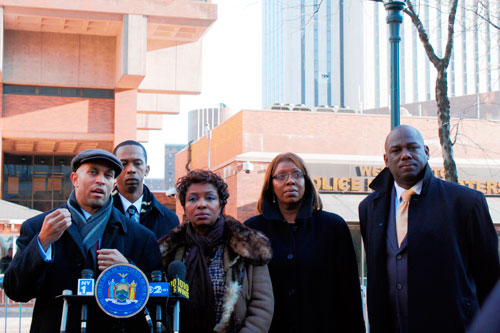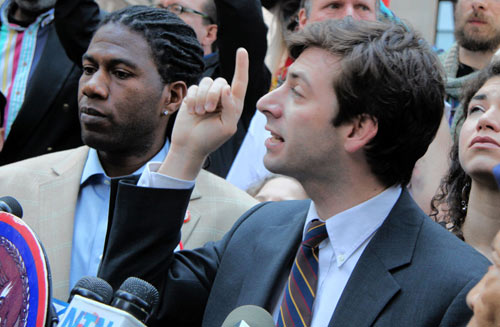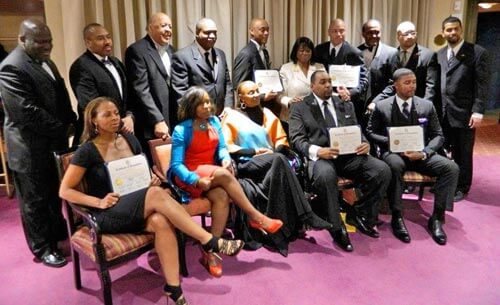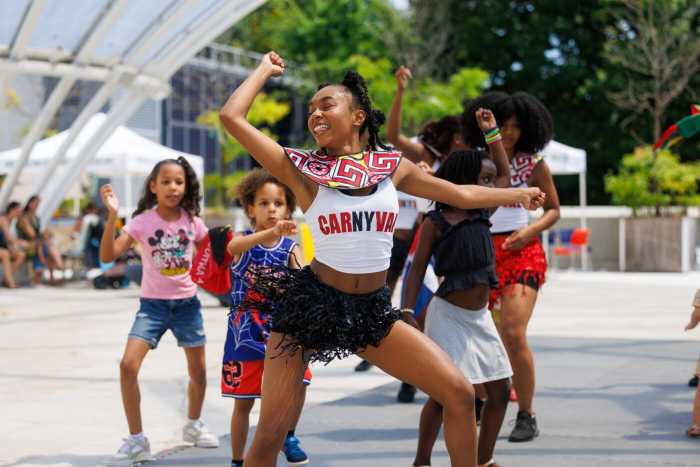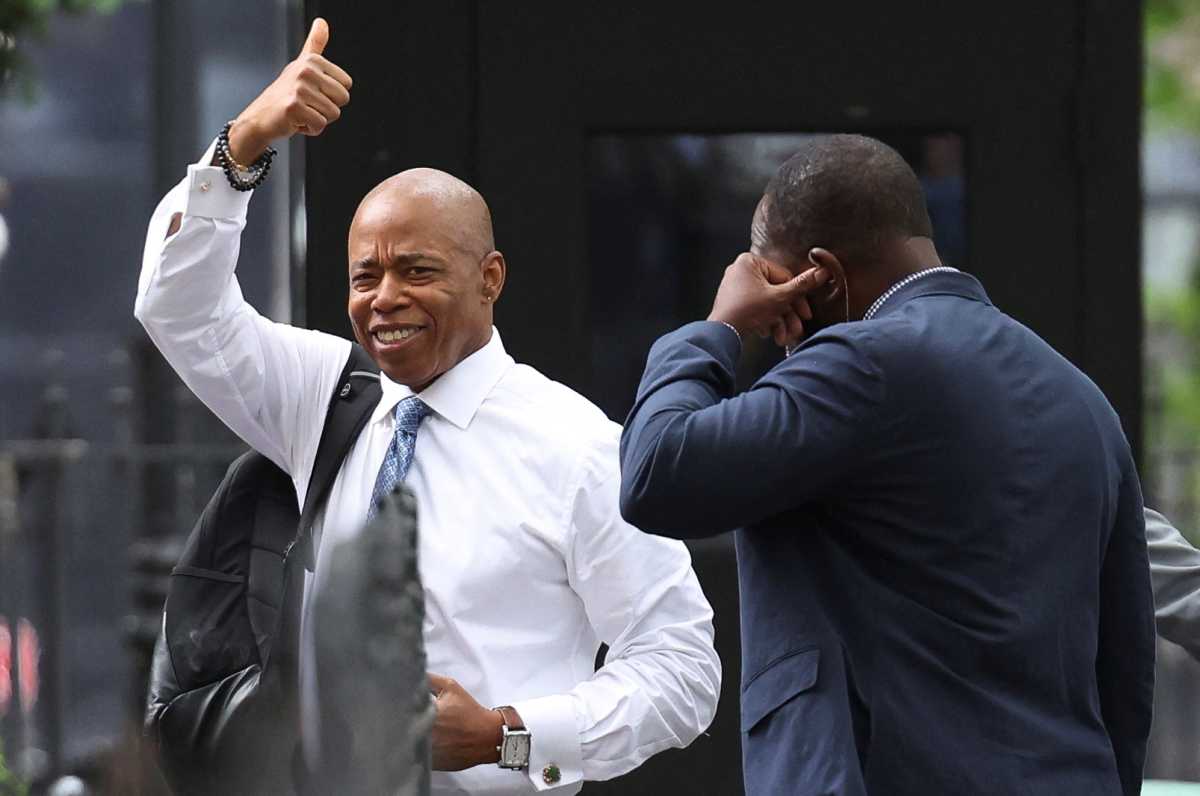In the wake of what has been described as racist comments about West Indians on Facebook by some members of the New York Police Department (NYPD), local city, state and federal lawmakers are pushing for residency laws for police officers.
The Caribbean and African American elected officials joined forces on Sunday in announcing the introduction of legislation requiring residency of police officers.
“The vile and racist language used by police officers with respect to the West Indian Day Parade shocks the conscience and demands legislative action,” said State Assemblyman Hakeem Jeffries, at a City Hall press conference.
“We are not savages. We are not monkeys. We are sick and tired of officers who do not understand and respect our community,” said Jeffries, stating that he will table the legislation in the State Assembly next week.
“That is why I am introducing this legislation,” he continued. “In requiring New York City residency, the NYPD would recruit members with a higher stake in police practices and greater empathy for the community.”
Last week, the New York Times reported that officers maligned paradegoers at the annual West Indian American Day Carnival Parade on Labor Day, calling them “animals” and “savages,” among other names.
The Times reported that the Facebook page’s existence had been noted during a trial in Brooklyn, and that the page had disappeared from public view just days after a defense lawyer had found it, but not before he saved all the data.
The NYPD said it has matched 20 “offensive” postings on Facebook about the West Indian Day Carnival Parade with names of police officers.
Police Commissioner Raymond Kelly said that the officers now face questioning by the NYPD’s Internal Affairs Bureau over the comments.
But some officials have called for an investigation by an independent agency rather than the NYPD’s own Internal Affairs Bureau.
“I applaud Assemblyman Jeffries for presenting state legislation to address the clear disdain that some NYPD officers harbor towards those who participate in the West Indian American Day Parade and by extension Caribbean-Americans across our city, state and nation,” said Congresswoman Yvette D. Clarke, who represents the largely Caribbean 11th Congressional District in Brooklyn.
“I join my colleagues in continuing to hold the NYPD accountable for these despicable and racist posts,” she added, renewing her call for these officers to be “removed immediately.”
“Brooklyn residents deserve a police department that fully upholds it pledge to protect and service the people,” she continued.
Under current New York state law, residency is not required when one takes the police exam.
However, at the time of appointment, residency is required either in New York City or one of five suburban counties: Westchester, Rockland, Orange, Putnam, Nassau or Suffolk.
Jeffries said the current NYPD force is at about 34,500. In 1997, under Police Commissioner Howard Safir, 45 percent of NYPD officers lived in New York City. Other major American cities like Boston, Philadelphia and Chicago require residency for their police force.
Jeffries’ bill would not require officers currently living outside of the city to move. However, the law would require new recruits to reside in the city of New York.
“The culture of the NYPD, which is codified in policies such as stop, question and frisk, is blatantly discriminatory towards communities of more color,” said Grenadian American Councilman Jumaane Williams, who was unlawfully arrested during the parade in September.
“Mayor Bloomberg and Commissioner Kelly continue their refusal to admit that there is a real problem, and as a result every option needs to be explored and discussed to rectify this crisis,” added the representative for the 45th Council District in Brooklyn.
Council Member Letitia James said the attitude of police officers who made the disparaging comments “mars the integrity of the NYPD.
“Outrage has followed these deeply bigoted comments, which suggest that the officers view their duty as a war against the communities they have sworn to protect, and is reminiscent of a time before community policing was established as NYPD policy,” she said.


